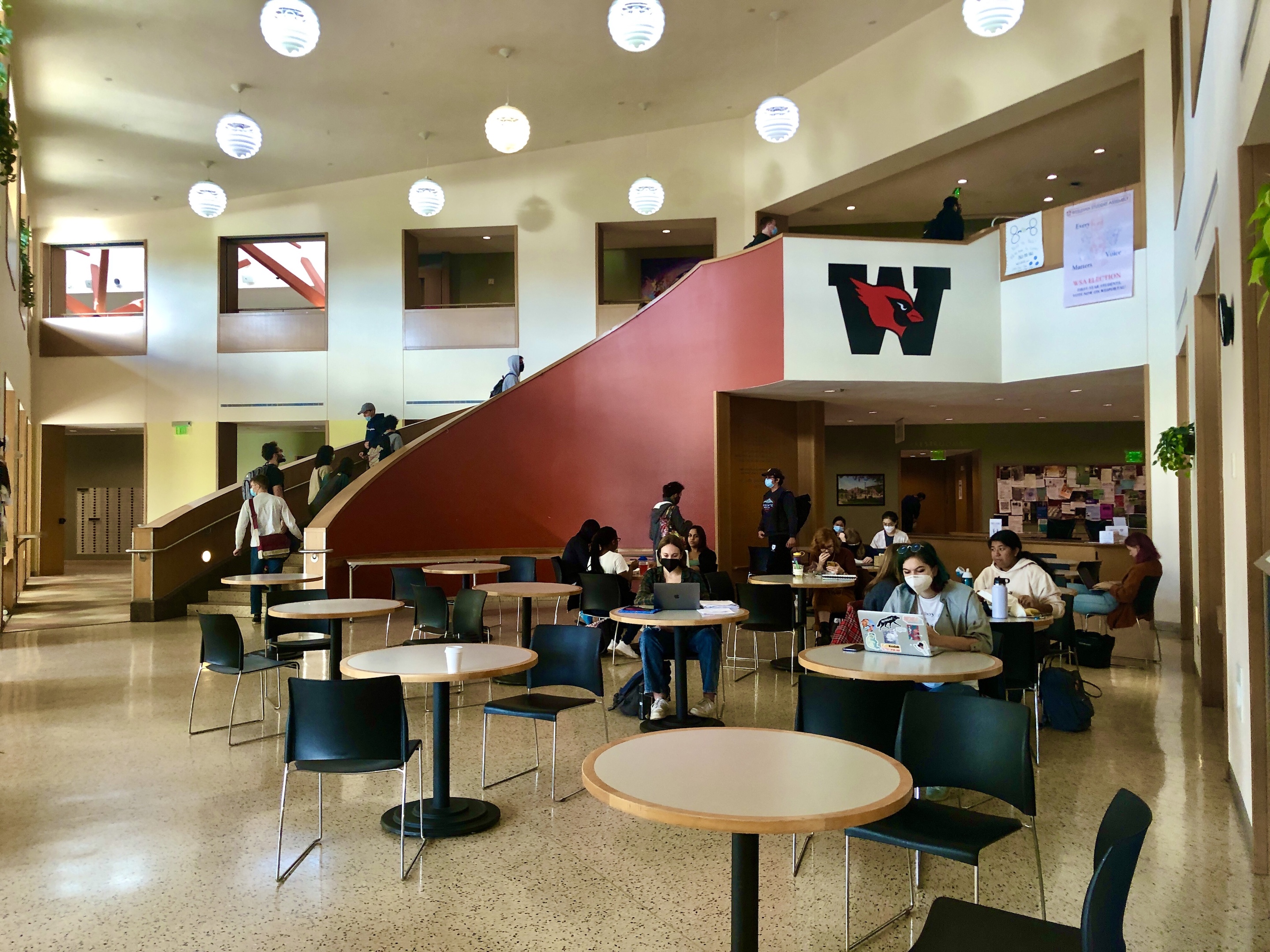
In an all-campus email sent on Monday, Oct. 18, the University announced that faculty and staff would receive three free lunchtime meal swipes per semester to encourage their engagement with students outside of the classroom. These meal swipes will be added to all faculty/staff WesID cards and can be used at either Usdan Marketplace or the food truck.
Similar initiatives that aimed to build community between the student body and faculty existed before the pandemic. A collaboration between faculty and the University’s administration set this iteration of the program in motion.
“The idea actually came to me to really get this up and running and soon from [Chair of the Faculty] Ishita Mukerji, who also is thinking lots about, you know, how to reestablish and reconnect our community,” Provost and Senior Vice President for Academic Affairs Nicole Stanton said. “And so I thought it was a terrific idea, and I went to Dean Mike Whaley and said, ‘Let’s partner and do this program again.’”
According to Whaley, the program largely serves to foster connections in a more casual setting than is typical for students and professors.
“We’ve had several different iterations of [the program], but it was pretty much continuous for several years until COVID sent everything sideways,” Whaley said. “The purpose of it was really to create opportunities for faculty and students to have interactions outside of a formal academic arena. So outside the classroom, or the lab, or the studio.”
In past years, Whaley added, various versions of the program have only involved faculty, whereas University staff are also included this year.
“We thought that it was really important to address, to the extent that it exists, the faculty-staff divide,” Whaley said. “And so that’s why…we loaded these meals on faculty and staff IDs, so that, for example, somebody in WesWell, or a librarian, or somebody in Physical Plant could also have lunch with a group of students.”
Despite this new addition, Stanton also explained that much of the program is still geared towards connecting faculty advisors with their advisees.
“It really is just a way to encourage faculty to have other kinds of community interactions with their students…but mostly it’s around advisees,” Stanton said. “That was how I saw faculty use it. I certainly took advantage of it and would use that as an opportunity to take my pre-major advisees for lunch as an opportunity for them to connect with each other, as much as for them to connect with me.”
While Stanton also hopes participation in the program will be high, she recognizes that the changing weather places certain constraints on the ability to dine outdoors, which may inform student and faculty comfort around dining together.
“One of the reasons we wanted to try to get it going as soon as we can—but, you know, sometimes it just takes time administratively to get things up and running—[was] so that folks could eat outside,” Stanton said. “So I hope that people take advantage of it while the weather is still somewhat warm. And particularly when the weather gets a lot warmer, and it’s easier to meet in large groups and eat together, that we’ll definitely see a great uptick.”
Whaley explained that the program is financed by the University’s dining budget.
“It’s paid by [the Finance office], but it’s really part of how they think of the budget for the dining program,” Whaley said. “Bon Appétit is a contractor that we hired to run the dining program, and there are costs and also revenue associated with that. And so Finance essentially thinks of incorporating the costs of this as a write-off or part of the operation of the program, because we see it as essential.”
Additionally, Stanton emphasized the importance of this program as part of the University’s recovery from the COVID-19 pandemic and adjustment to a new normal.
“Clearly, we’re still not completely out of the pandemic, by any means,” Stanton said. “But we’re all here. We’re all here together, and how do we navigate this new space? How do we navigate this new normal being back together again, in a very different way than we have been able to in a year and a half, almost two years? So this is a small piece of how we do that. But, hopefully, it’ll be meaningful to people.”
Sam Hilton can be reached at shilton@wesleyan.edu.


Leave a Reply